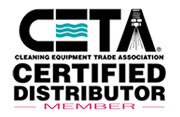 Commercial pressure washers are a vital piece of industrial equipment for many industrial and commercial businesses. Business owners use them to clean everything from cars and trucks to industrial equipment and buildings.
Commercial pressure washers are a vital piece of industrial equipment for many industrial and commercial businesses. Business owners use them to clean everything from cars and trucks to industrial equipment and buildings.
However, like with any piece of equipment, pressure washers can fall victim to many issues. This blog post highlights the most common issues with commercial pressure washers to help you understand why they occur.
Washer Engine Failure
Engine failure is often a result of many factors, some of which you can look at below.
Poor Maintenance
Oftentimes, issues from poor maintenance start slowly before they culminate into full-blown engine failure. You might notice that your commercial-grade pressure washer no longer starts smoothly or runs a little rougher than usual when there’s a problem.
An excellent example of such a problem is when there’s a faulty oil choke. The oil choke supplies the engine with oil. So if this component doesn’t work properly, the washer engine won’t receive the right amount of oil. This problem often triggers subtle issues that become a menace when the power washer eventually fails.
Overloading Issues
Most people don’t know that an overloaded industrial pressure washer can cause engine failure. Simple mistakes can cause an overload and trigger serious issues with critical washer components like the engine.
For example, if you force too much water through the pump with the nozzle on release, the pump can overheat. The engine bogs down and eventually stalls.
In such a case, the engine builds up excessive pressure levels without a way to relieve some of the built-up pressure. This increased strain can cause the power washer to fail. To avoid engine failure, never leave your industrial pressure washer on after you release the nozzle.
But that’s not the only reason for heat buildup. The engines in industrial pressure washers often run at a high RPM for longer periods. Prolonged use can cause these power washers to overheat and fail. Keep an eye on the temperature gauge and never allow the engine to run for too long without a break.
Wrong Oil Type
Industrial pressure washers typically use a high-pressure pump to generate a stream of water that can remove dirt, grime, and other debris from dirty surfaces. Inside the washer pump’s central system is an engine that needs oil to function properly. The oil lubricates the engine to ensure that the internal mechanical components remain in good condition.
But keep in mind that pressure washers are not all the same. The wrong type of oil can cause your engine to overheat, a trigger for imminent system failure. Take your time to do some research and figure out which type of oil your pressure washer can handle. You can consult your washer’s manual to find out which oil is best for your particular model.
With the right oil, your industrial pressure washer will be able to run smoothly and efficiently –– without any risk of engine failure.
Low Water Pressure
Several things can cause low output pressure in an industrial pressure washer, including:
- A clogged nozzle
- An obstructed hose
- A faulty pump
A clogged nozzle is usually the main cause of low water pressure from pressure washers. Over time, dirt and debris build up in the nozzle and restrict pressurized water flow. A washer service expert can clean the nozzle with a brush or push compressed air through the nozzle to fix this problem.
An obstructed hose isn’t always obvious to the untrained eye. If the hose is kinked, pinched, or otherwise constricted, the issue can restrict the normal water flow and create pressure issues. Always check the hose for any obstructions before you use your pressure washer to protect your unit from undue strain.
Similarly, if the pump is defective, you may have to deal with restricted water flow and low pressure. Pressure washer pumps are pretty delicate and require an expert diagnosis from a seasoned professional.
Unfortunately, low water pressure carries several risks. First, your pressure washer becomes less effective at cleaning surfaces. The water stream won’t be as strong, so your unit will struggle to remove all the dirt, grime, and debris.
In addition to poor effectiveness, low water pressure can also cause the pump to overheat and fail. Most pressure washer pumps can only work properly at a certain pressure level. If the water pressure is too low, the pump has to work harder to generate the same amount of pressure, which can cause the unit to overheat.
Finally, low water pressure can cause the seals in the pump to malfunction, a problem that eventually leads to pump failure. The seals won’t close properly if the water pressure is too low. Water will slowly leak through and damage the pump.
Most of these issues can be difficult to diagnose without the right set of skills. Contact experienced pressure washer service experts like Ben’s Cleaner Sales to get the root of your pressure washer’s problems. Our team of certified technicians would be happy to get your pressure washer back up and running in no time.

